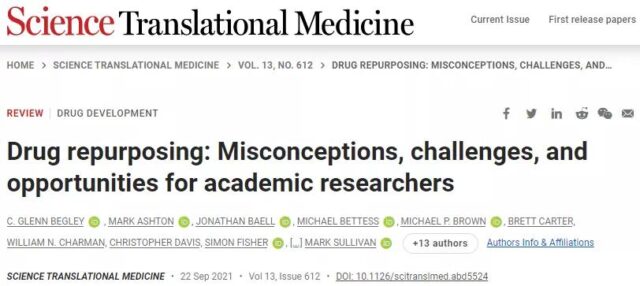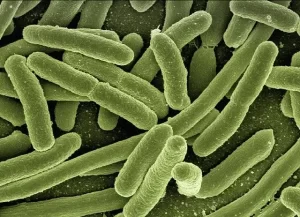The death rate of taking this old drug to treat COVID-19 actually higher!
- Did Cloud Seeding Unleash a Deluge in Dubai?
- Scientists Identify Gut Bacteria and Metabolites that Lower Diabetes Risk
- OpenAI’s Model Matches Doctors in Assessing Eye Conditions
- UK: A Smoke-Free Generation by Banning Sales to Those Born After 2009
- Deadly Mutation: A New Monkeypox Variant Emerges in the DRC
- EPA Announces First-Ever Regulation for “Forever Chemicals” in Drinking Water
The death rate of taking this old drug to treat COVID-19 actually higher!
- Red Yeast Rice Scare Grips Japan: Over 114 Hospitalized and 5 Deaths
- Long COVID Brain Fog: Blood-Brain Barrier Damage and Persistent Inflammation
- FDA has mandated a top-level black box warning for all marketed CAR-T therapies
- Can people with high blood pressure eat peanuts?
- What is the difference between dopamine and dobutamine?
- How long can the patient live after heart stent surgery?
The death rate of taking this old drug to treat COVID-19 actually higher!
Can the old drugs become a “magic bullet” for patients with COVID-19? The study found that the death rate of the experimental group “intaking this old drugs to treat COVID-19 pneumonia” was higher!
Drug reuse, referred to as new use of old drugs. The research and development of new drugs is costly and time-consuming, but it can sometimes be used to treat new diseases by changing the use of existing drugs.
However, some studies have found that the experimental group that “receives the old drug-anti-malarial chloroquine for the treatment of COVID-19 pneumonia” has a higher mortality rate!
A study published in Science Translational Medicine on September 22 showed that experts said that drug reuse is not a shortcut to develop new treatments for diseases (including COVID-19). There are inherent dangers and deficiencies. Effective way to market.
At present, there is no “magic bullet” for COVID-19 pneumonia, and there is a lack of rigorous clinical research, as well as the determination of the dosage and timetable for new indications.
Screening new drug candidates from old drugs
The new type of coronavirus infection that has swept across the country has brought an “old medicine” to the scene in the war against the epidemic. It is the first choice for anti-malarial drugs-chloroquine. Chloroquine is an alkaline drug that increases the pH of the endosomes required for virus and cell fusion, inhibits virus reproduction and thereby inhibits virus infection.
However, according to the latest seventh edition of the antiviral drugs of the COVID-19 pneumonia diagnosis and treatment plan, chloroquine is believed to be more effective than hydroxychloroquine in anti-new coronavirus, but hydroxychloroquine has fewer side effects than chloroquine and is safer.
Hydroxychloroquine can help zinc enter the cell, and zinc will slow down the virus replication in the cell. After oral administration, the concentration in the lungs is 700 times higher than that in the serum, and hydroxychloroquine has human immunomodulatory activity, which is also its drug mechanism in prevention and early treatment.
 Hydroxychloroquine
Hydroxychloroquine
Since chloroquine and hydroxychloroquine, the two anti-malarial drugs, entered the “old medicine and new use” to treat COVID-19 pneumonia, it has caused constant disturbances. Sweden, France and many other countries have stopped using them to treat patients with COVID-19. Rick Bright, director of the U.S. Agency for Advanced Research and Development of Biomedicine, has also boycotted unproven antimalarial drugs to treat patients with COVID-19. In terms of clinical research, Brazilian researchers stopped some hydroxychloroquine research because some patients experienced heart rhythm problems after receiving two high-dose drugs. The U.S. Veterans Health Administration Medical Center conducted a study and found that the experimental group receiving hydroxychloroquine for the treatment of COVID-19 pneumonia had a higher mortality rate!
According to the case reports in the FDA’s adverse event reporting system database, hydroxychloroquine has only been approved by the FDA to enter the phase 3 clinical trial of COVID-19, and the FDA has not approved chloroquine and hydroxychloroquine for the treatment and prevention of COVID-19. It is expected to recruit 200,000 people in the future. Patients participated in more than 100 studies on hydroxychloroquine.
The clinical data research results of the COVID-19 “magic drug” Redcivir are also unsatisfactory. WHO Director-General Tedros Adhanom Ghebreyesus pointed out that there is currently no “magic bullet” for COVID-19, and there may never be one. During the pandemic, all countries hope to find effective drugs, but for drugs, experiments, specific scientific laws and rigorous logic are needed to prove that they are safe and effective. Political public opinion cannot be a lever to influence science. Research on specific drugs , Need to wait.
Challenges and Opportunities in the Development of SARS-CoV-2 Therapeutic Drugs
In this regard, experts said that drug reuse is not a shortcut for the development of new disease treatments (including the new coronavirus). There are inherent risks and risks in converting similar compounds such as chloroquine, hydroxychloroquine, and ivermectin into drugs for the treatment of new coronaviruses. defect.
A paper written by Australian drug discovery and translation experts (including the pharmaceutical industry, academia, and investors) highlights the potential challenges and opportunities for drug reuse.
Researchers published an article titled “Drug repurposing: Misconceptions, challenges, and opportunities for academic researchers” on September 22 in “Science Translational Medicine.”
The potential methods of new treatments for the new coronavirus have become the focus of global attention.
 DOI: 10.1126/scitranslmed.abd5524
DOI: 10.1126/scitranslmed.abd5524
Although there is a hypothesis that drug reuse is an effective way to bring new drugs to the market, the lead author of the study, former global leader and vice president of hematology/oncology research in Amgen, California, Boston Parthenon Therapy The current co-founder of the company, Dr. Glenn Begley, believes that there are only a few examples of academic groups that have successfully changed the use of drugs.
Dr. Begley said that the regulatory process still requires a clear commercial value proposition, clear intellectual property rights, established understanding of drug metabolism, and rigorous preclinical and clinical studies to determine the dosage and schedule for new indications.
He cited an example of reusing the controversial and failed drug thalidomide to treat leprosy and multiple myeloma, which is a long process. Other measures include reusing the veterinary anti-helminth drug moximectin to treat river blindness, and the use of the fungicide dimethyl fumarate for the treatment of relapsing multiple sclerosis.
Dr. Begley said: “Reuse of drugs is rarely as trivial as taking approved drugs and using the same dosage and dosing schedule for clinical trials in different diseases.”
“This requires new pre-clinical safety and efficacy studies, appropriately designed phase 1 and phase 2 studies, supervision by regulatory agencies, and the establishment of new intellectual property rights. The failure rate, cost, and time are similar to those of new drug development. This is not a stopgap The plan.”
“In addition, if these key issues are not resolved, many clinical projects for drug reuse cannot meet the’clinical equilibrium’, so it is unethical.”
Professor Jonathan Baell of Monash University, a co-author of this study and a well-known medicinal chemist, said: “There is a hypothesis that drug reuse is an effective way to bring new drugs to the market. In fact, this is naive and ignores The reality that many drug developments require regulatory approval.”
Professor Baell said that more than 100 drug reuse projects are currently underway to develop new treatments for the new coronavirus, including anti-infective drugs such as remdesivir, chloroquine, ivermectin and hydroxychloroquine. However, since there is no clear randomized controlled phase 3 clinical trial to help determine its effectiveness in different environments, early reports on its effectiveness are mixed.
He pointed out: “One of the major challenges faced by some of these efforts to reuse drugs is the failure to link the way the drugs move in the body or the way the body responds to the drug at the concentration required to treat the new coronavirus.”
Professor Baell said that more research is underway to determine drugs that may be re-used to treat the new coronavirus, but many compounds lack effectiveness, require very high doses, and may not be tolerated in order to be clinically beneficial.
UniQuest executive director and commercialization and research co-author Dr. Mark Ashton said: “One of the most common challenges of drug reuse is the lack of expertise to promote development and commercialization. People with doubtful expertise can also possess the expertise needed to successfully navigate intellectual property, preclinical and clinical development, and regulatory and reimbursement requirements for potential drug candidates.”
“In this regard, university technology transfer offices or business and industrial experts, as well as strengthened supervision and identification of drug reuse opportunities, can really help.”
The death rate of taking this old drug to treat COVID-19 actually higher!
(source:internet, reference only)
Disclaimer of medicaltrend.org
Important Note: The information provided is for informational purposes only and should not be considered as medical advice.



